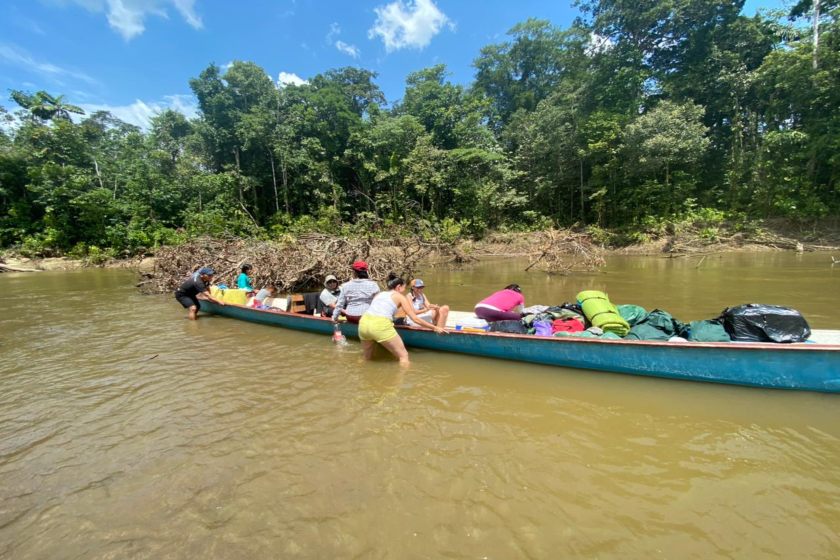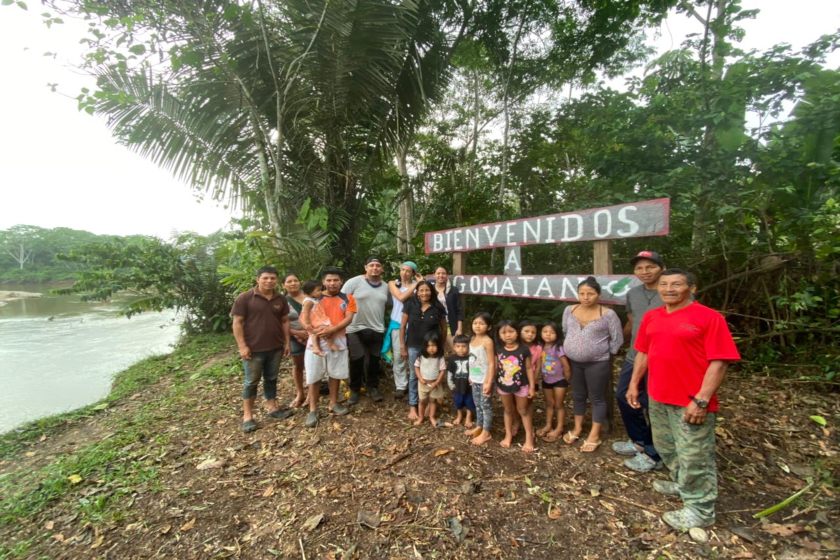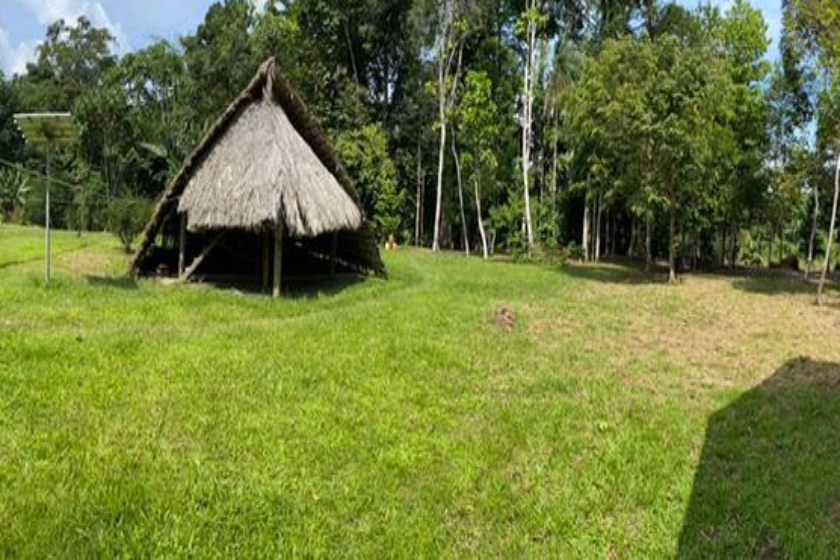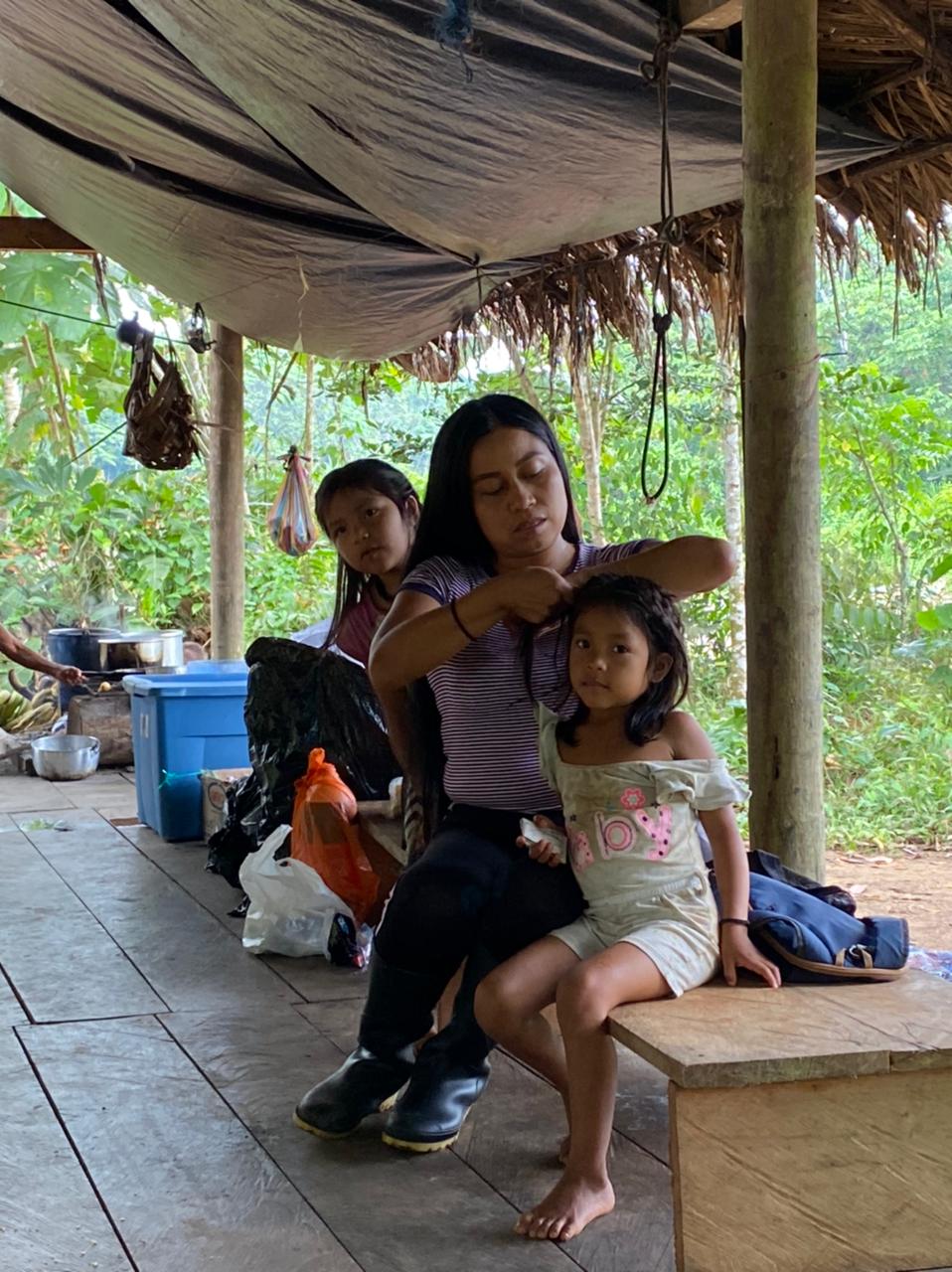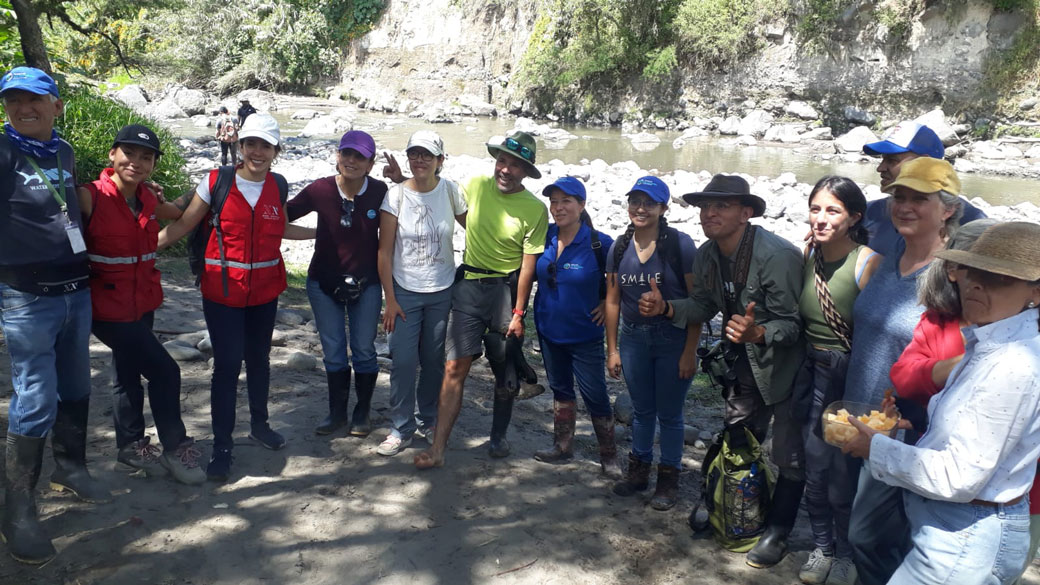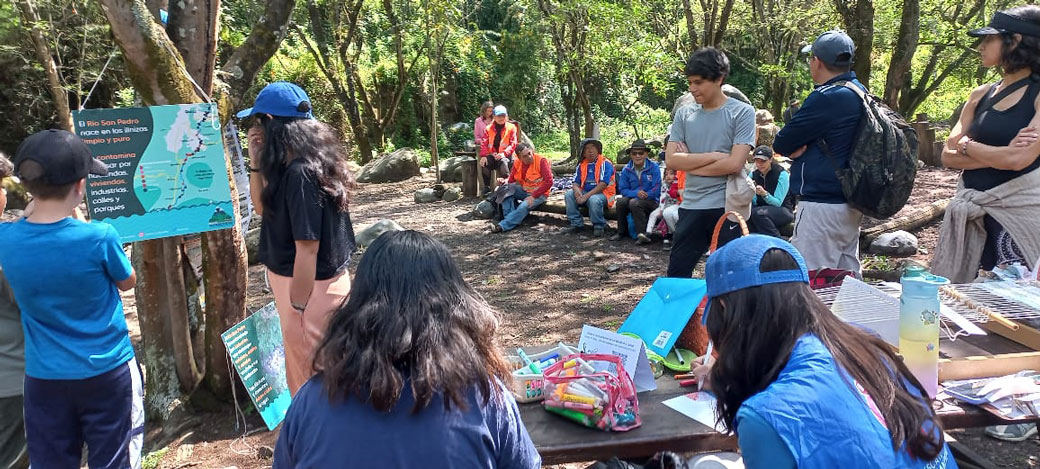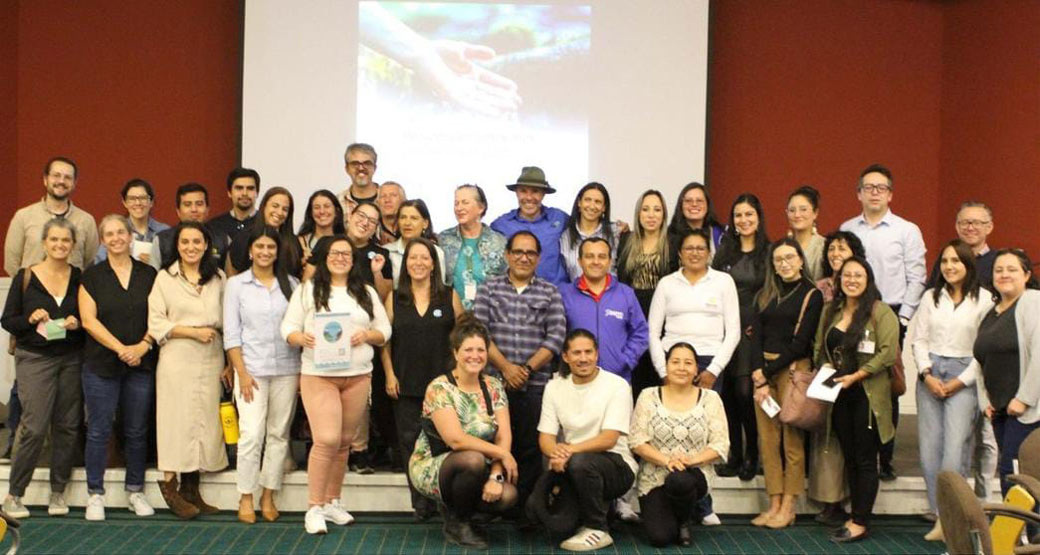MINGA PARA MI RÍO PROJECT
“Minga para mi Río" project seeks to conserve and protect rivers and their biodiversity in order to maintain the ecological processes and ecosystem services that they offer. Our proposal is to involve many entrepreneurs, thinkers, managers, academics and artists to offer and carry out various activities for the conservation of rivers. For this, the project is made up of the following components: Citizen Science, River Restoration, a Sustainability Model, and Fluvial Reserves.
CITIZEN SCIENCE IN THE RIVERS OF THE ANDEAN-AMAZON BASINS OF ECUADOR
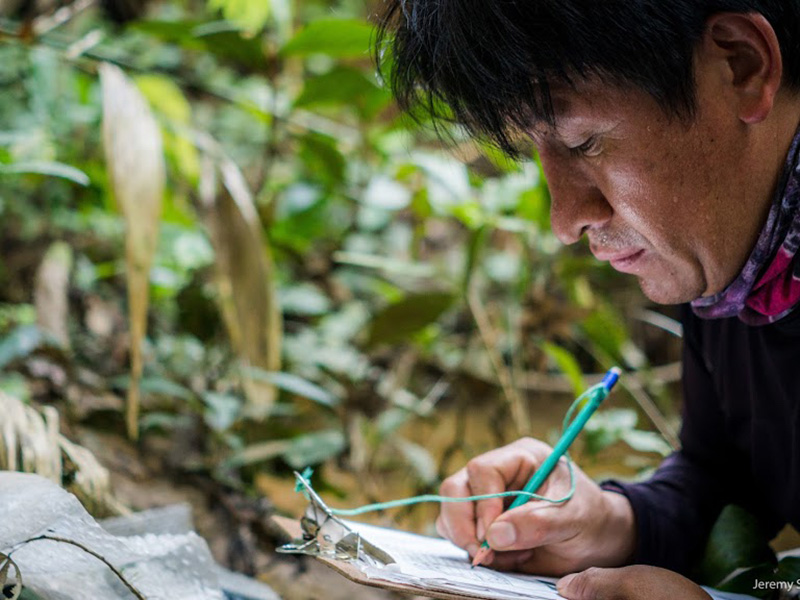
START – END DATE: September 2020 – July 2022
STATUS: Completed project
PRINCIPAL INVESTIGATOR: Dr. Andrea C. Encalada (USFQ Researcher)
LOCATION: Rivers of the Andean-Amazonian Basin of Ecuador
FUNDING: Gordon y Betty Moore Foundation
The Citizen Science project will be developed in three sites in the Curaray and Nushiño basins: Gareno, Gomataon and Geyepade to establish a community monitoring system of freshwater ecosystems (rivers, streams and lagoons). The rivers selected to be monitored are all in the Napo basin, one of the most biodiverse Amazon regions, and located along a significant elevation gradient (from 178 to 1000 m.a.s.l.). The project will contribute to the empowerment of local actors through the monitoring and management of their rivers, and will contribute to the generation of scientific knowledge on a regional scale within the Citizen Science for the Amazon program, promoting citizen participation in decision-making, and contributing to the conservation of the Amazon Basin. This monitoring will generate information on aquatic biodiversity (fish and invertebrates), environmental services (fisheries and other uses of water), ecological integrity (physical, chemical and microbiological parameters), and water pollution (analysis of solid and liquid contaminants).
Researchers
- Andrea Encalada (USFQ): Project Coordinator
- Esteban Suárez (USFQ): Ecology and Conservation
- Valeria Ochoa-Herrera (USFQ): Solid waste management and treatment
- José Daza (USFQ): Monitoring of aquatic environments
- Daniela Rosero (USFQ): Monitoring of aquatic environments
- Claudia Serrano (USFQ): Monitoring of aquatic environments
- Segundo Chimbolema (USFQ): Monitoring of aquatic environments
- Carla Villamarín (USFQ): Monitoring of aquatic environments
- Diego Mosquera (USFQ): Monitoring of aquatic environments
- Junior Chuctaya: Taxonomy
- Elizabeth Anderson (FIU): Remote sensing consultancy
- Paulo Olivas (FIU): Remote Sensing consultancy
“BODIES OF WATER: RECONNECTING WITH THE MACHÁNGARA RIVER”
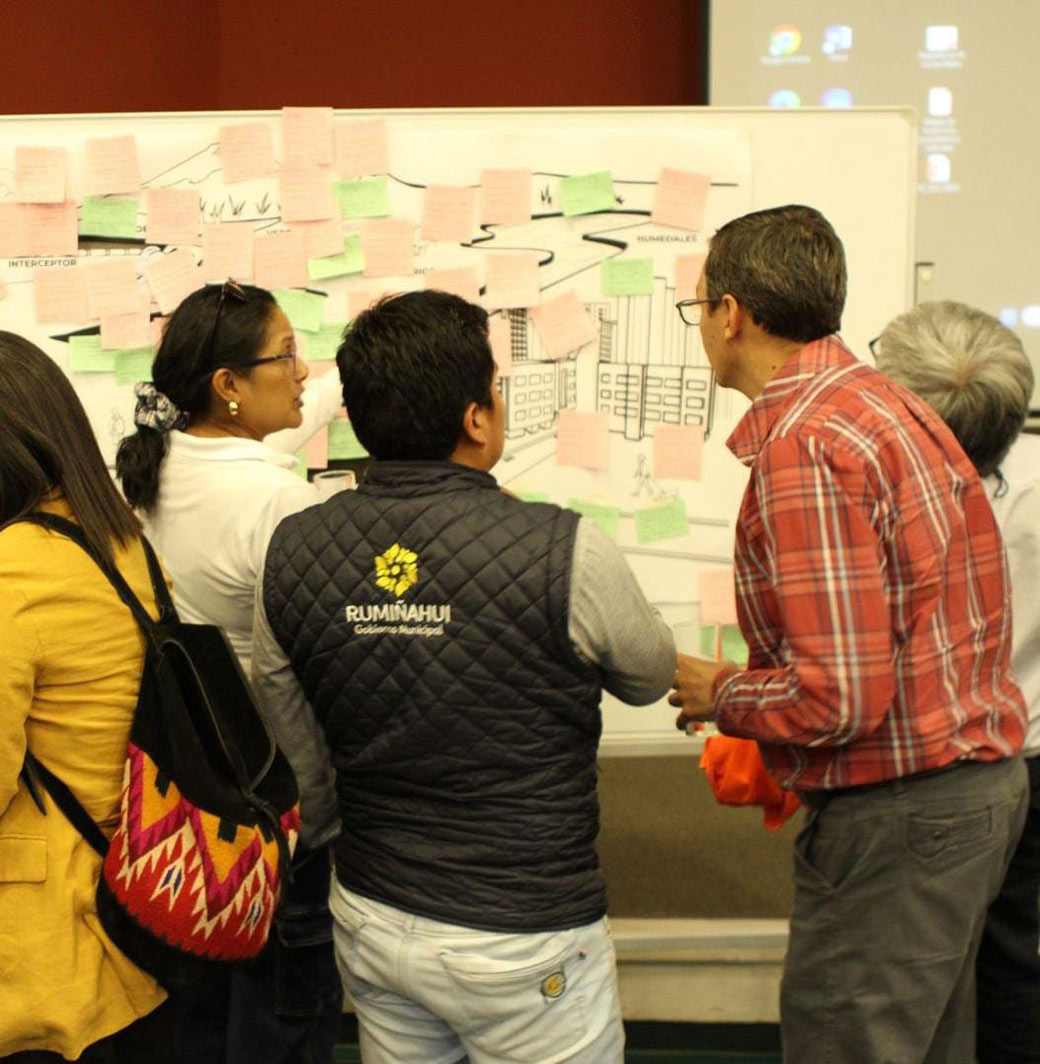
START – END DATE: January 2024 – December 2024
STATUS: On-going project
PRINCIPAL INVESTIGATOR: Dr. Andrea C. Encalada (USFQ Researcher)
LOCATION: Machángara and San Pedro sub-basins, belonging to the Guayllabamba river basin, Province of Pichincha, Ecuador.
FUNDING: Department of Liaison University San Francisco de Quito
The initiative titled “Bodies of Water: Reconnecting with the Machángara River” seeks to revitalize and strengthen the community´s bond with the Machángara River in Pichincha, Ecuador. This will be accomplished by engaging local residents in activities that encourage them to be re-inhabited, and also raising awareness about the ecosystem’s current condition. The primary aim of the project is to establish a strategic outreach program that communicates the difficulties and solutions proposed by students, decision-makers, riverside inhabitants, and potential donors for the recovery of the river.
The project will be developed in Quito, covering areas from Quitumbe (South of Quito) to Nayón (Valleys surrounding Quito). A total of 20% of the residents of the Machángara basin who live near the river will be involved.
Researchers
- Andrea C. Encalada: aquatic ecologist specialized in rivers and designer of the recovery strategy for connections with rivers in Quito.
- Daniela Rosero Lopez: environmental engineer specialized in eco-hydrological regimes and project coordinator.
- Daniel Escobar Camacho: evolutionary biologist interested in distribution patterns of fish species in the rivers of Quito.
- Melany Ruiz: environmental biologist who is interested in the remediation processes of the rivers in Quito through local microorganisms.
- Jaime Lopez: urban architect with an environmental focus for harmonious development in the streams and rivers of Quito.
- Andrea Landázuri: specialist in chemical and environmental processes for water remediation.
- Andrés Martínez: environmental lawyer specialized in water as a resource and the ecosystems from which they come.
- José Daza: aquatic ecology research assistant.
- Pamela Moreno: aquatic ecology research assistant.

